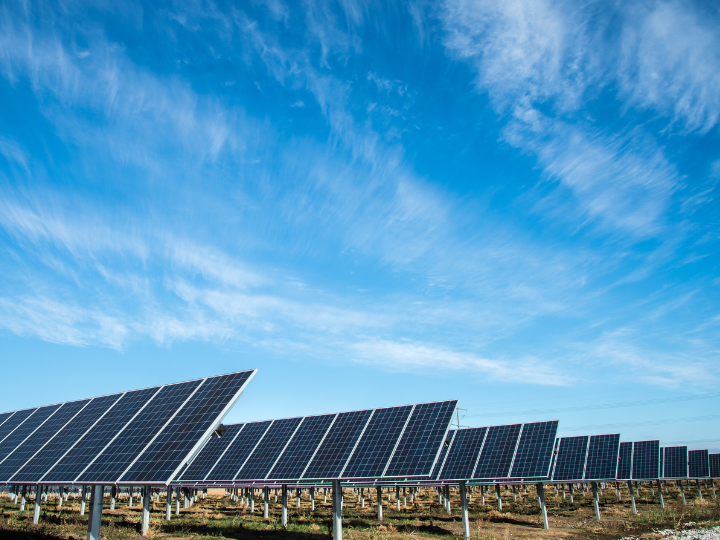by Kira Taylor
The European Commission defended its proposal to source 45% of the EU’s energy from renewable sources by 2030 as EU countries look to lower ambition, EU climate chief Frans Timmermans told EURACTIV in an exclusive interview.
EU countries and the European Parliament are currently in talks about a new law to boost green energy production, including a target setting out how much of Europe’s energy mix should come from renewables by 2030.
In December, EU countries supported a 40% renewable energy target as part of ongoing talks to revise the EU’s renewable energy directive, a goal lower than the 45% tabled by the EU’s executive Commission and supported by Parliament.
“I think we need to hold the line for 45%,” Timmermans told EURACTIV in an exclusive interview at the International Renewable Energy Agency (IRENA) assembly in Abu Dhabi.
“If you see the pace with which our renewables are being built – offshore wind but especially also rooftop solar – I think the target is ambitious, but feasible,” he added.
When it first proposed updating the renewables directive in July 2021, the European Commission suggested a 40% target for 2030 but it upped this to 45% last year in response to Russia’s invasion of Ukraine.
22% of the EU’s energy came from renewables in 2020, two percentage points higher than the bloc’s agreed target for that year.
Higher target
According to Timmernans, there is an “increasing understanding” in EU capitals that a higher renewables target is required to strengthen the EU’s energy security in the face of falling Russian gas exports to Europe.
“Many see the need to wean ourselves off fossil fuels because of the climate crisis, but everybody sees that we can no longer depend on fossil fuels and the only way we can increase our sovereignty in the energy field is going for renewables,” he told EURACTIV.
And faster EU permitting rules could make the objective more palatable to EU countries, he believes.
“If we can help member states with that, then the target also becomes easier to attain,” Timmermans explained.
However, speaking to EURACTIV at the IRENA conference, Polish undersecretary of state Adam Guibourge-Czetwertynski highlighted the challenges faced by EU countries in achieving a higher share of renewables.
“When we look at the target at EU level, we’re not only talking about electricity production, we’re also talking about heat and transport,” said Guibourge-Czetwertynski.
“Today, we are missing technologies – in particular, I think, in large-scale production of heat. There are some technologies available, but none that are really something scalable,” he added.
Taking Warsaw’s district heating system as an example, the Polish minister said that to fuel this with biomass, Poland would need to cut down a forest the size of Brussels each year.
While Poland has its own plan to develop renewables and nuclear with the objective of strengthening energy independence, there are limits as to what can be done before 2030, he added, saying there was more potential to expand clean energies by 2040.
Speeding up renewables
In the interview, Timmermans also emphasised Europe’s commitment to speed up the deployment of renewables, despite increased reliance on coal in the short term to replace Russian gas in electricity production.
“We’re not distracted. If anything, Russia’s weaponising of energy has reinforced our transition to renewables. I want to share that with the wider world because we’ll only be successful if everyone’s on board,” he said.
“Yes, we will need fossil fuels. Yes, we are digging up more coal than we wanted to dig up but, nevertheless, we are enhancing our goals,” he added, pointing to Europe’s climate legislation package, initially tabled in July 2021 and which is now in the final stages of adoption.
Others share the same view. With its 2021 climate package and its response to the COVID crisis, the EU “has sent a very powerful signal” about the urgency to accelerate the energy transition, said Achim Steiner, the administrator of the United Nations Development Programme (UNDP).
“These are unprecedented investments in accelerating the transition,” Steiner told journalists at the IRENA conference. “So, I think Europe domestically has sent a vital signal after the pandemic to say ‘look, as we put a stimulus in place, we will use that to accelerate the transition’,” he said.
For Poland, accelerating the transition is also a necessity. The country is currently revising its energy policy in response to the crisis, looking to reduce the role of gas as much as possible, which likely means relying on coal for longer.
“We want to move faster to a decarbonised system, relying on nuclear, renewables and energy storage. But we also want to reduce the role of gas in the transition period,” said Guibourge-Czetwertynski.
*first published in: Euractiv.com




 By: N. Peter Kramer
By: N. Peter Kramer
